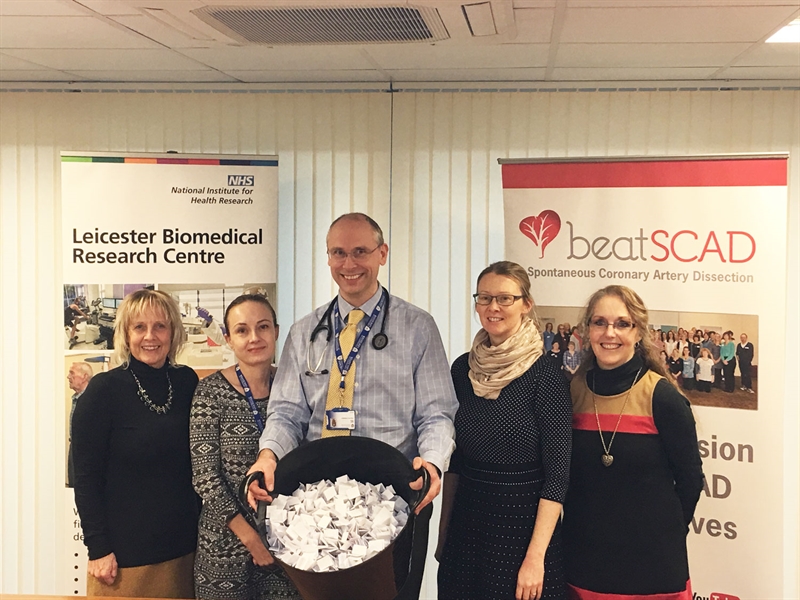In January 2018, a donation of £3,000 was awarded following the Beat SCAD Prize Draw that ran between September and November 2017. These funds were used to purchase and distribute blood sample tubes to SCAD patients who were registered for the research but had not participated in any research assessments.
SCAD patients took the blood tubes to their GP or local hospital for samples to be taken and shipped to Leicester. Almost 400 patient samples plus a further 50 samples from relatives were returned, which was a fantastic return rate and was hugely appreciated by the research team.
Dr Adlam said: “The blood samples have led directly to the identification of the first genetic risk locus associated with SCAD. This should not be considered as an indication that SCAD is strongly inherited as the evidence suggests SCAD does not usually run in families, but it provides international research groups with the first opening into understanding how our genes affect the risk of SCAD.”
The publication of the first SCAD genetics paper in the prestigious Journal of the American College of Cardiology (JACC) is imminent and the funding support of Beat SCAD is acknowledged in the manuscript.
The blood samples are now undergoing gene sequencing and will soon provide a valuable dataset for the research team to investigate, including looking for known genes for connective tissue disorders.
The blood samples are also enabling important laboratory work to be conducted which aims to investigate some of the underlying ‘why’ questions about SCAD.
Samples from SCAD patients and healthy volunteers are being used for a proteomics study in which the structure and function of proteins are being analysed. The expression of proteins by cells and tissues can change in relation to disease so this study is looking for any patterns that may be linked to SCAD.

